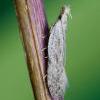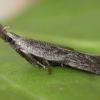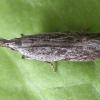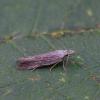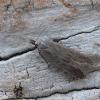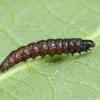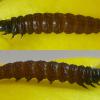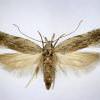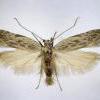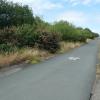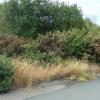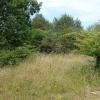35.020 Anarsia spartiella (Schrank, 1802)
Status and Distribution
Local to locally common throughout much of the southern half of England, Wales and the Channel Islands. More local in Ireland and Northern Ireland, very local in northern England, Isle of Man and Scotland as far north as Inverness. Apparently absent from the far north of Scotland and the Western and Northern Isles.
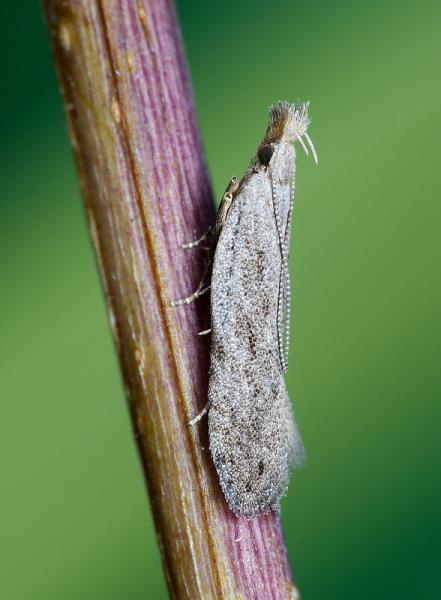
Provisional map
Foodplant and Larval Feeding Signs
Ulex europaeus (gorse), see plant distribution map, Cytisus scoparius (broom) and Genista tinctoria (dyer's greenweed). In Europe also found on Lembotropis nigricans and Cytisus triflorus.
Feeds in spun shoots and, on gorse, has been found feeding within withered gorse flowers.
Habitat
Finding the Moth
Larva: spins shoots in gorse, broom and dyer's greenweed, spinning the leaves together towards the stem. Has been found feeding within withered gorse flowers where the larva could be confused with those of Agonopterix nervosa, Brachmia blandella and Blastobasis adustella.
Adult: can be disturbed from the foodplants during the day and comes readily to light.
Similar Species
A variable species where the plain form is readily identified. When more strongly marked specimens are encountered, such as those with a costal blotch and some light streaking, non-bred specimens may require dissection to separate them from the other Anarsia species.
Single brooded from mid-June to mid-August.

